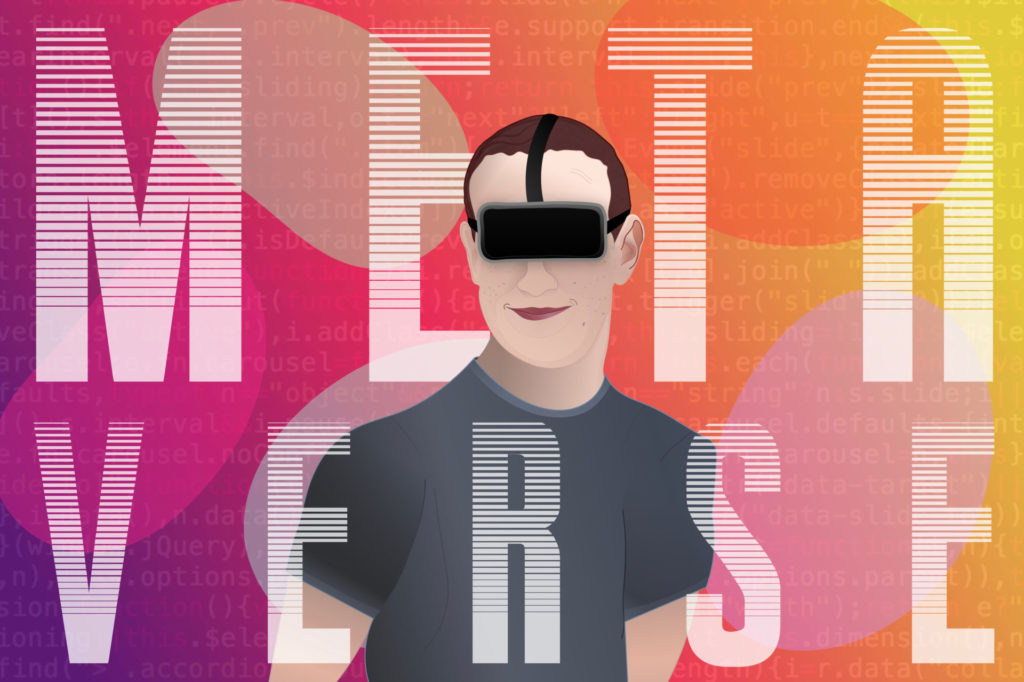Technology is evolving at a rapid pace. While some companies are working on product or service developments, others are heavily investing in new ways to fundamentally change the way we use technology. Smartphones, cloud computing, AI and ML, and blockchain are some of these revolutionary technology paradigms that have caught the tech world’s attention in the past. The term “Metaverse” is one such latest buzzword that has been capturing the global tech industry’s attention so much that it has become a macro-goal of many global tech giants.
Metaverse: Definition
The literal meaning of the word Metaverse means “a universe beyond.” The term has long been used to describe the concept of a future iteration of the Internet we use to stay connected. Because the concept of the Metaverse itself is still burgeoning, there are several definitions to describe it. Simply put, it is a digital realm that allows humans to interact with other humans or digital (virtual) entities to communicate, collaborate, play games, conduct business, or socialize. It can also be defined as a virtual shared space created by converging physical and virtual worlds.

Any application, service, or platform that allows you to interact with other humans or digital entities in a virtual world constitutes the Metaverse. From Pokemon Go, which uses augmented reality, to Facebook’s latest Horizon Workrooms, which allows virtual collaboration, are the stepping stones to what the Metaverse could be in the future.
Facebook’s involvement
Facebook has been playing a pivotal role in driving the concept of the Metaverse in the contemporary IT world. The social media giant has recently invested $50 million to build the Metaverse responsibly. The company announced that it would be working with Howard University, the University of Hong Kong, and Seoul National University to study the safety, equity, and ethical aspects of Metaverse.

Facebook CEO Mark Zuckerberg said that the Metaverse will be the next major computing platform after the rise of smartphones and wants to jumpstart this potential tech revolution instead of owning it for themselves. The company also announced that it would collaborate with and fund other third-party developers and companies to advance Metaverse. Facebook is so confident in this tech that it has decided to rename itself “Meta,” as announced last week at the Facebook Connect conference.
And it’s not just Facebook eyeing the Metaverse as the future. At its recent fall Ignite event, Microsoft unveiled some of its plans for the Metaverse.
Technology involved
While there can be a wide array of technologies involved in the Metaverse, a majority of them include virtual reality, augmented reality, mixed reality, meatspace, and assisted reality.
Contrary to common belief, one key thing to understand is that the Metaverse is not just virtual reality. Instead, VR is a key driving factor of the Metaverse and can be a constituent in its roadmap. Although, ideally, one might not need a VR headset like Oculus or Sony PlayStation VR to experience Metaverse in its future iterations. Nonetheless, the Metaverse, as it is now, might need some assistance from VR headsets or other devices that allow us to interact with virtual world entities.

Metaverse: Driving force
The Metaverse will need a massive infrastructure to revamp and advance in the technology, including increased computing power, 3D imagery, VR technology, Internet connectivity, and more. While Facebook has been a major driving factor, other companies such as Nvidia, Microsoft, Unity Software, Autodesk, Adobe, and Tencent are among the other major companies working on Metaverse.
Applications of the Metaverse
The ability to integrate the physical and virtual world enables Metaverse to incorporate virtual reality and mixed reality in several everyday use-cases and domains such as entertainment, manufacturing, health care, collaboration, sports, and training. However, the ethical and applicability aspect of it is something global tech communities are working on.
The future
The whole concept of the Metaverse is still in its infancy, and no one knows to what extent it can affect and disrupt the way humans use and interact with technology. However, from its surface, it can have massive implications for society in several domains and can further extend the horizons of technology in our everyday lives.
Featured image: Shutterstock



